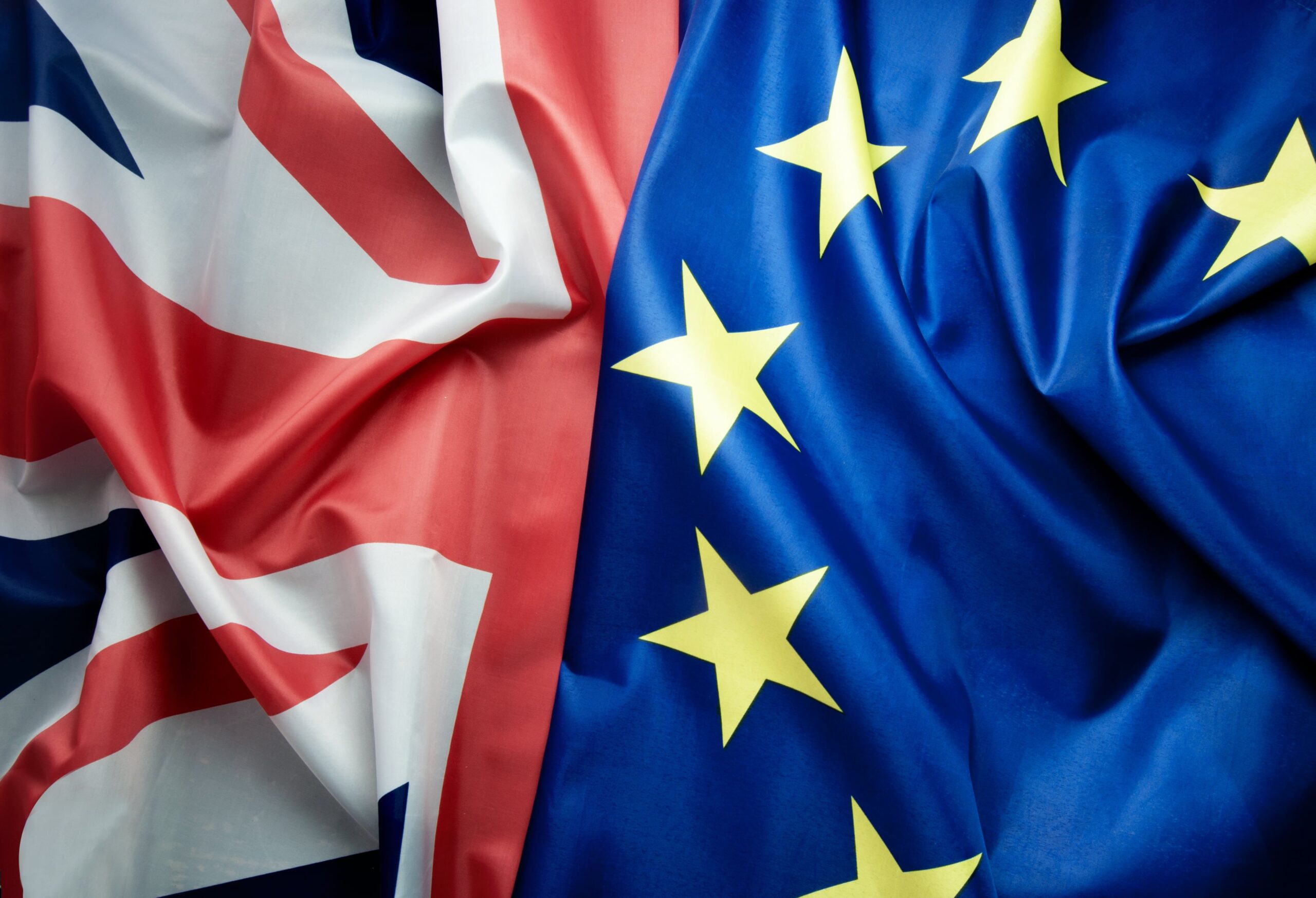Update on UK-EU Relationship
Northern Ireland
After months of deadlock between the UK and EU over Northern Ireland, UK Prime Minster Rishi Sunak delivered a statement to the House of Commons on Monday 27 February 2023, setting out the content of the Windsor Framework. The Framework, which is set to replace the seemingly abandoned Northern Ireland Protocol Bill, is a proposed post-Brexit legal agreement between the UK and the EU, targeting the problems of movement of goods between the EU’s single market and Northern Ireland. The Framework will introduce a new system of “green lanes”, allowing trusted traders to export goods from Great Britain to Northern Ireland with minimal checks.
While the Framework has received praise from Sunak loyalists, Leader of the Opposition Sir Keir Starmer, and European Commission president Ursula von der Leyen, there remain some issues to iron out. Sir Jeffrey Donaldson, Leader of the Democratic Unionist Party, has bemoaned the continuing applicability of EU law in certain sectors in Northern Ireland. Jim Shannon, another DUP MP, argued that any deal “must include the cessation of Europe Court of Justice interference in UK sovereignty”, which the Framework does not.
MPs from the Northern Irish Alliance and Social Democratic and Labour parties have also voiced their concerns over the “Stormont Brake”, which they fear could cause more instability in the Northern Irish Assembly and create uncertainty for businesses as to the applicability of single market rules.
A vote on the Framework is expected once all members have had the chance to study the detail of the proposed legislation.
Revocation of EU Law
The Retained EU Law (Revocation and Reform) Bill continues to be the subject of debate in the House of Lords. Several amendments were proposed and considered at day 2 of the committee stage, aiming to exclude certain regulations from the scope of the Bill’s “sunsetting” of EU law – among these were regulations requiring children to wear seatbelts in cars. Ultimately, all of these amendments were withdrawn, meaning none were voted on. The Lords have now agreed that clauses 1 to 5 of the Bill will remain as they are.
The House of Lords also debated the Financial Services and Markets Bill, which aims to revoke retained EU law specifically relating to financial services, enabling the Treasury and British financial services regulators to replace it with legislation designed for the UK market.
Channel Crossings
In January, UK Prime Minister Rishi Sunak promised to “pass new laws to stop small boats, making sure that if you come into this country illegally, you are detained and swiftly removed”. This was then followed up earlier this month, when he announced plans to permanently ban migrants from re-entering the UK if they cross the Channel on small boats. Home Secretary Suella Braverman has now announced the Illegal Migration Bill, setting out the detail of Sunak’s general proposal.
There are two primary ways in which the Bill seeks to deter individuals from entering the UK unlawfully.
Firstly, it carries the threat of removal, either back to the migrant’s country of origin or to a “safe” country, such as Rwanda. However, from a purely practical perspective, there will inevitably be barriers to such removals, given that they are contingent on the recipient country accepting the removed individual.
Secondly, anyone who enters the UK outside of normal immigration laws will be permanently denied access to the asylum system and lawful immigration status. This means that they will not be able to claim asylum or be given permission to stay or work in the UK, and their families will never be allowed to join them lawfully.
The Bill has received a mixed reception in the Commons, to say the least. While Scott Benton, Conservative MP for Blackpool South, praised the Bill and claimed that the UK is “nearly full”, even Sunak’s own party appears divided on the proposed legislation. Former Prime Minister Theresa May criticised the efficacy of the Government’s plans, asserting that “whenever you close a route, the migrants and the people smugglers find another way, and anybody who thinks that this bill will deal with the issue of illegal migration once and for all is wrong”. Another Conservative MP, Caroline Noakes, initially appeared more concerned with the moral and ethical implications of the Bill than its potential effectiveness in dissuading illegal migration, stating that she was “deeply troubled” by a policy “which seems to criminalise children, pregnant women, families and remove them to Rwanda”, and claimed that she would not support the Bill. Despite Noakes’ apparent unease, she ultimately decided that she would, in fact, vote for the Bill.
On the opposite benches, the Labour party have confirmed their stance against the Illegal Migration Bill. Leader of the Opposition Sir Keir Starmer accused the Government of “utter failure” in its immigration policy and claimed that the Bill would not stop small boats. Green party MP Caroline Lucas tore up a copy of the Bill in the Commons, after declaring it “immoral, deeply cruel and divisive”. Independent MP Claudia Webbe said that “many would argue that this is racist legislation” and described the powers to detain individuals for 28 days as “state-sanctioned fascism”. Webbe’s comparison of the draft legislation to “fascism” echoed BBC Sports pundit Gary Lineker’s twitter comments on Government immigration policy – comments which resulted in Mr Lineker’s suspension from Match of the Day, before overwhelming backlash forced the BBC to reinstate him.
Ultimately, Labour’s attempt to block the Illegal Migration Bill was defeated by 312 votes to 249. The Bill will now pass to its second reading.
Key dates
- Late 2023: new requirements for Export Health Certificates for EU imports to Great Britain are subject to further delay – a new date will be confirmed.
- Late 2023: Phytosanitary Certificates and physical checks on goods such as meat and plants at British Border Control are subject to further delay – a new date will be confirmed.
- Late 2023: Safety and Security declaration requirements on EU imports into Britain are subject to further delay – a new date will be confirmed.
- December 2023: date in the Retained EU Law (Revocation and Reform) Bill, at which point the special status of EU legislation UK domestic law will end.
- 31 December 2025: end of grace period for facilitating entry of veterinary medicines from Great Britain to Northern Ireland.

